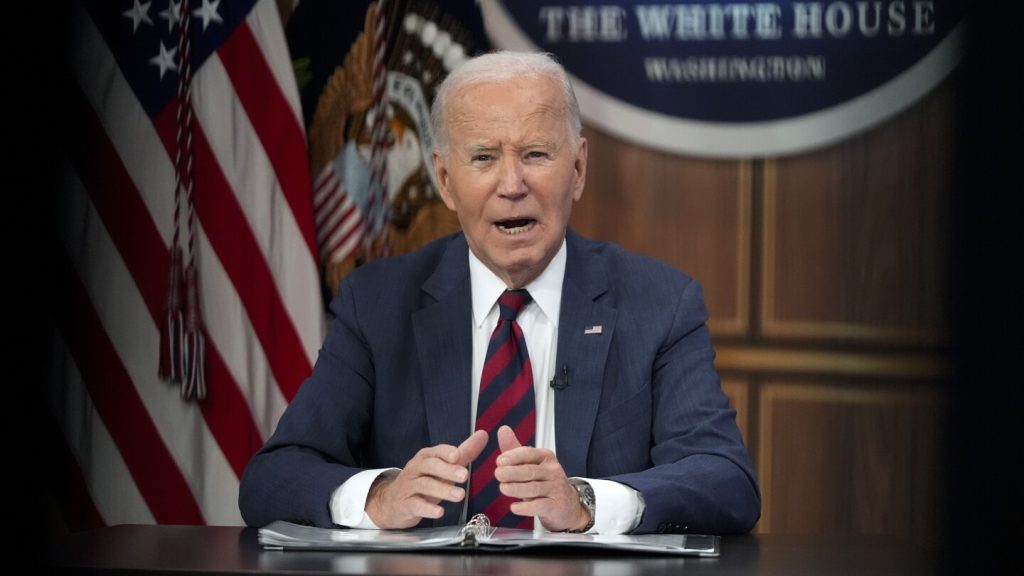Workers in various industries across the country are increasingly seeking union representation under President Joe Biden’s administration, with the number of petitions filed with the National Labor Relations Board doubling in fiscal year 2024 compared to the previous year. This marks the first increase in unionization petitions during a presidential term since the administration of Gerald Ford. President Biden attributed this rise to his administration’s support for workers, contrasting it with his predecessor, Donald Trump, whom he accused of siding with big corporations and undermining workers’ rights.
Vice President Kamala Harris, the Democratic nominee, is banking on union support to mobilize voters in the upcoming presidential election. However, President Trump’s appeal to blue-collar workers through his stance on tariffs has resonated with some unionized workers, overshadowing his record in office for certain individuals. In the 2020 election, only 16% of voters belonged to a union household, with Biden securing 56% of their votes compared to Trump’s 42%. The margin of support from union households could play a crucial role in determining the outcomes of key states such as Pennsylvania, Michigan, and Wisconsin in the upcoming election.
Apart from seeking union representation, workers are also becoming more assertive in reporting what they perceive to be unfair labor practices. The National Labor Relations Board saw a significant influx of cases last fiscal year, with a total of 24,578 cases reported across its field offices, marking the highest number in more than a decade. This increase in reported cases might indicate a greater awareness among workers about their rights and a willingness to take action against any perceived violations, further emphasizing the growing momentum around labor rights and protections.
President Biden’s administration’s focus on supporting workers and unions is evident in the rising number of petitions for union representation and the increase in reported cases of unfair labor practices. Biden emphasized the importance of unions in driving economic growth and ensuring that all workers benefit from a strong labor movement. The contrast between his administration’s approach and that of former President Trump, who was accused of favoring big corporations over workers, has been a key point of differentiation in the upcoming election, with both candidates vying for union support to secure victory.
The surge in union petitions and reported cases of unfair labor practices reflects a broader shift towards prioritizing workers’ rights and protections under President Biden’s leadership. As the administration continues to advocate for pro-worker policies and expand support for unions, the impact of this approach on the broader economy and labor landscape remains to be seen. With the upcoming election posing significant stakes for the labor movement and workers’ rights, the momentum around unionization and labor advocacy is likely to play a pivotal role in shaping the outcomes of key states and influencing the direction of labor policy in the years ahead.
In light of the increasing focus on workers’ rights and the growing support for unions, the upcoming election presents a critical juncture for the labor movement and the broader workforce. The surge in union petitions and reported cases of unfair labor practices under President Biden’s administration highlights a shifting landscape where workers are increasingly empowered to voice their concerns and seek better conditions through collective bargaining. As the candidates compete for union support and emphasize their stance on labor issues, the impact of these developments on the future of labor policy and economic growth in the country remains a focal point for voters and policymakers alike.


